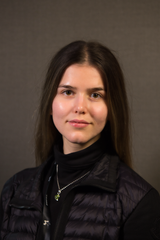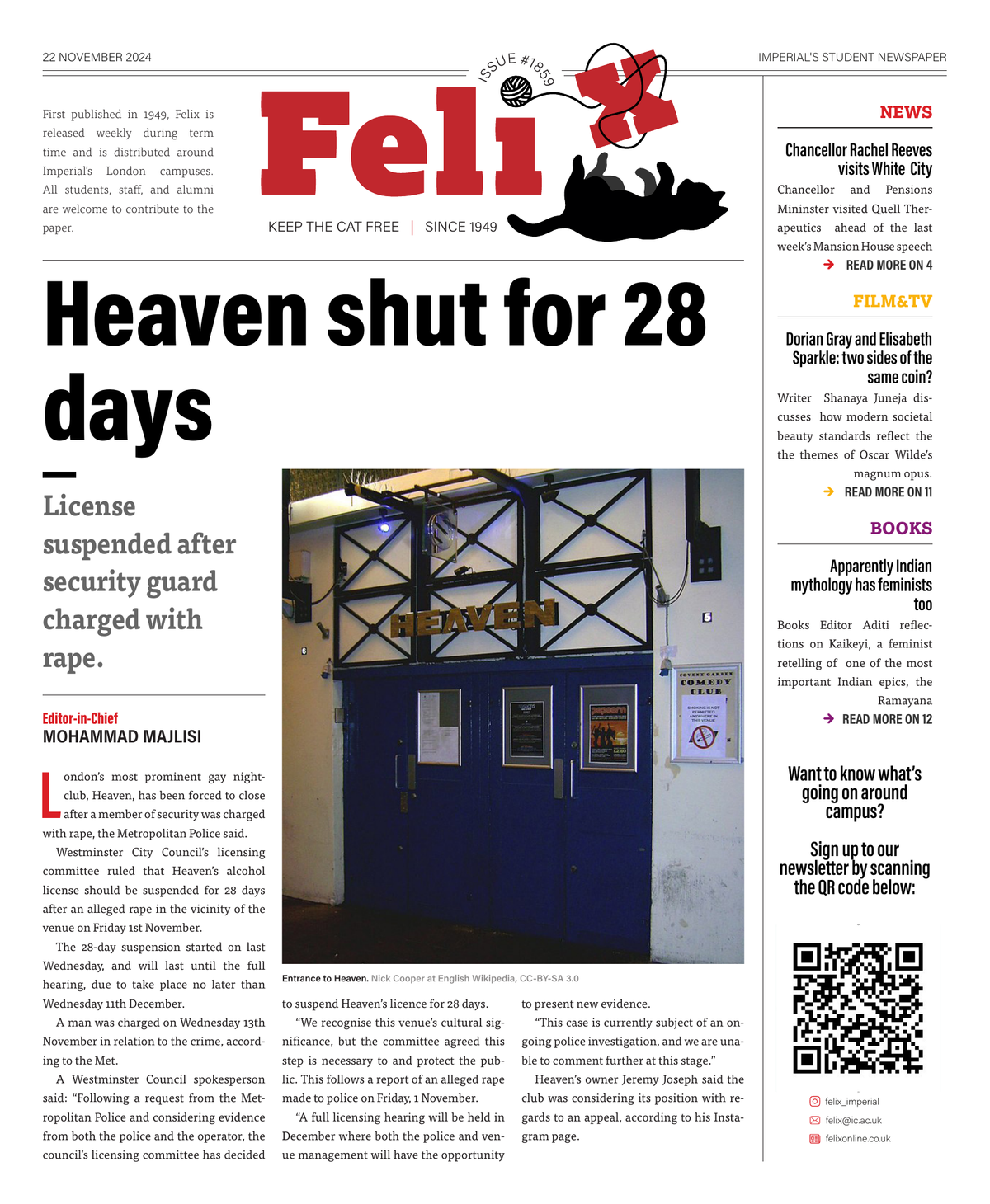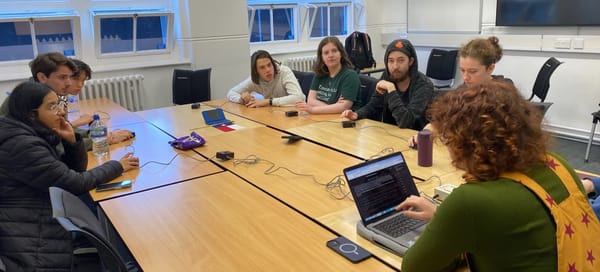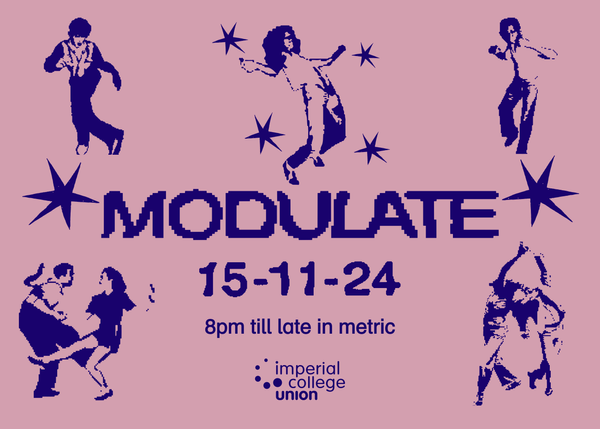PMS, meet Neurotech
Imperials’ FemTech and NeuroTech hosted Emilė Radytė, a fascinating researcher and entrepreneur, who gave an inspiring lecture on the interdependence of the brain and the female menstrual cycle, and showcased her company’s pioneering innovation.
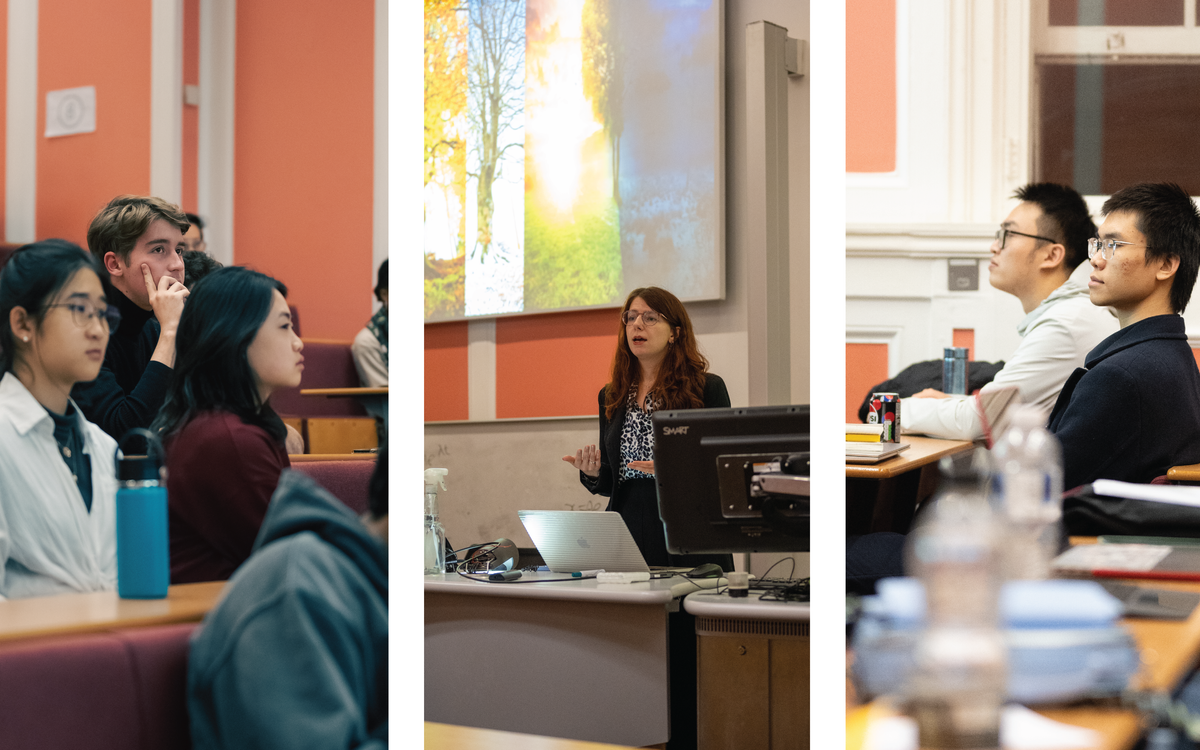
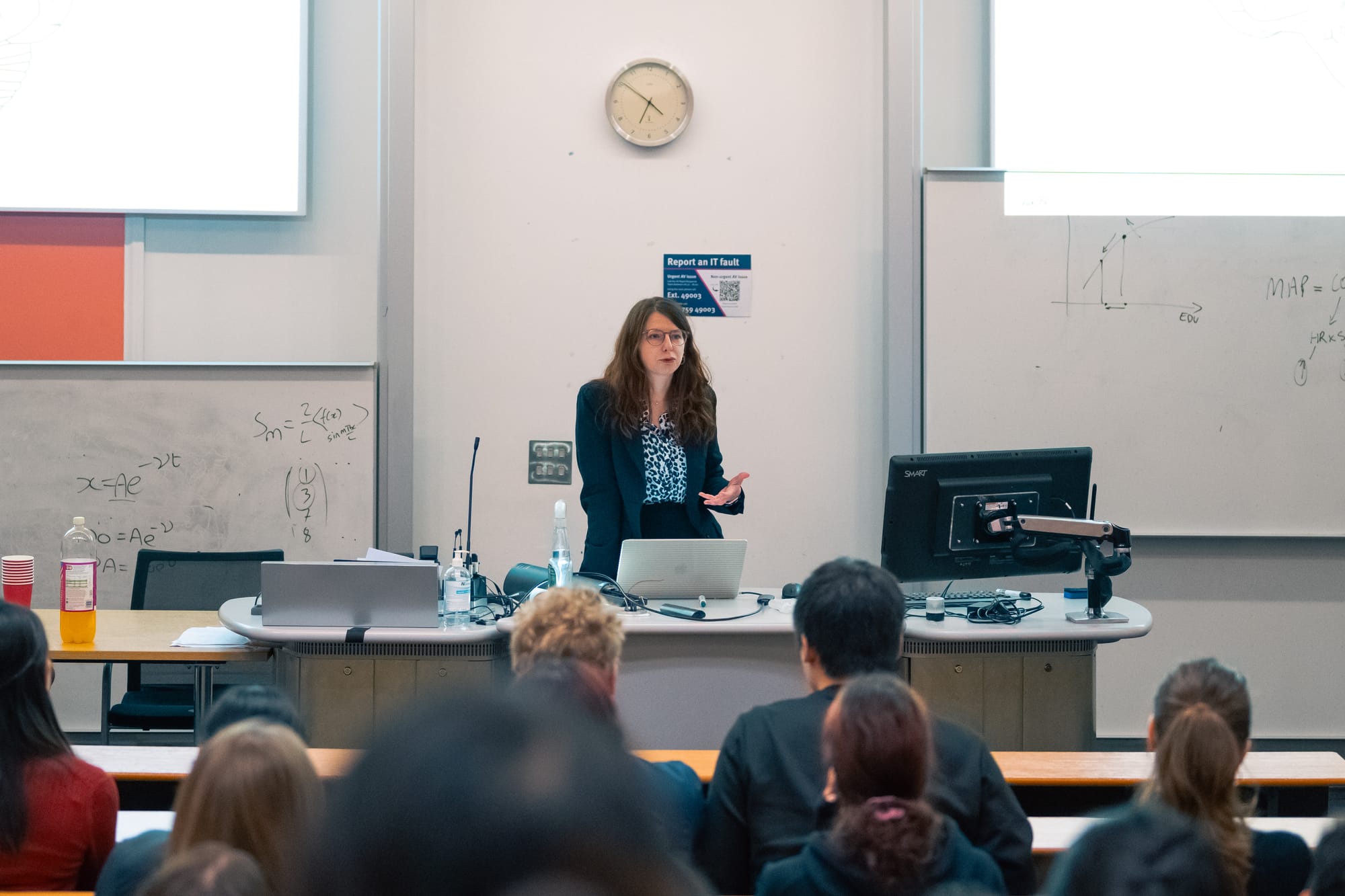
"I realise I am teaching a neuroscience 101 in five minutes”, Radytė casually claims ten minutes into her lecture on women’s neurological health and the current solutions available to the public to help monitor and predict a woman’s menstrual cycle. Standing in front of 50 students in RSM 131 on Tuesday at 6.30 pm, Radytė captured her audience instantly, preparing them for the most educational hour on women’s health.
Her lecture split into three main chapters: the brain, the two menstrual phases, follicular and luteal, and the current wearable solutions, ending the lecture with her company, Samphire Neuroscience’s, at-home wearable headpiece “Nettle”, the world’s first medical-grade, drug and hormone-free solution for managing PMS and menstrual pain. After each chapter, she opened the floor to the audience’s firing questions, answering each confidently with an eloquent explanation backed by a range of previous research papers, clinical studies, and innovations from other companies. The lecture ended in a 30-minute Q&A that could have easily continued well into the next hour. Afterward, students amassed around Radytė for further questions.
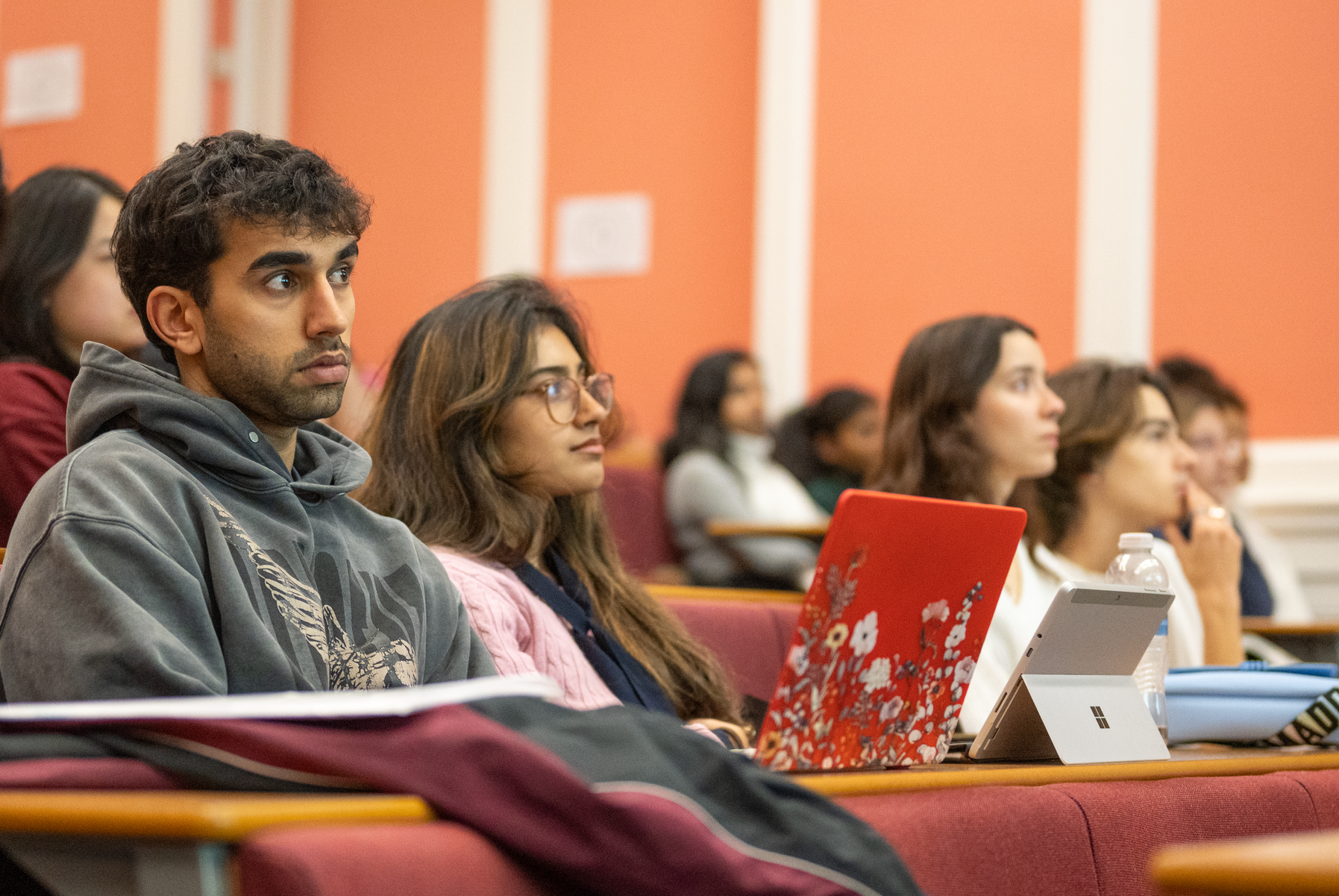
A trained neuroscientist and mental health professional, Radytė explained complex topics intuitively and seamlessly, providing commentative personal experiences to help bridge the gap between her and the female audience. With a comedic charm, Radytė explained the female cycle from a scientific and a social perspective, highlighting differences in measurable parameters, especially basal temperature, that explain women’s fluctuating mental and physical perceptions. Most currently available technologies, such as the Apple Watch and Natural Cycles, use the basal temperature change as a quantitative measure to signal the start of each phase, a technique superior to AI-backed tracking apps that do not monitor the individual’s cycle and unique body.
As her tone of voice reflected the unfortunate lack of understanding of women’s neural health and connection to their menstrual cycle, it becomes clear that her insights and knowledge of the current industry and research in academics make lectures such an excellent opportunity to learn from experts outside of academia.
At last, Radytė emphasised for inspiring scientists and engineers in the crowd, that her “path is not the only right path” and it is possible to “pursue both academia and business simultaneously,” despite many Imperial students feeling the choice of one or the other.

